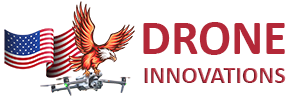Understanding Drone Privacy Concerns: Navigating the Sky Responsibly
Drones have revolutionized various industries, from photography and videography to agriculture and delivery services. However, as drone technology advances, so do concerns about privacy. In this blog, we’ll explore the key privacy issues related to drones, discuss the legal landscape, and provide guidelines for responsible drone usage to ensure privacy is respected.
The Rise of Drone Privacy Concerns
Drones equipped with high-resolution cameras and advanced sensors can capture detailed images and data from the sky. While this capability opens up incredible possibilities, it also raises significant privacy concerns:
- Surveillance: Drones can be used for surveillance, potentially capturing images or videos of people without their consent. This is particularly concerning in residential areas, where individuals have a reasonable expectation of privacy.
- Data Collection: Advanced drones can gather various types of data, including thermal images, audio recordings, and even personal information through hacking. Unauthorized data collection poses serious privacy risks.
- Paparazzi and Stalking: Drones have been used by paparazzi to capture private moments of celebrities and public figures. They can also be employed for stalking, creating a sense of intrusion and insecurity.
- Industrial Espionage: In the business world, drones can be used to spy on competitors, potentially capturing sensitive information and trade secrets.
Legal Landscape and Regulations
To address these concerns, many countries have implemented laws and regulations governing drone usage. Here’s an overview of some key regulations:
- Registration and Licensing: Most countries require drone operators to register their drones and obtain licenses, especially for commercial use. This helps authorities track drone activities and enforce privacy laws.
- No-Fly Zones: Many jurisdictions have designated no-fly zones around sensitive areas such as airports, military bases, and private properties. Violating these zones can result in hefty fines and legal consequences.
- Consent and Notification: In some regions, drone operators must obtain consent from individuals before capturing images or videos of them. Notification requirements may also apply, informing people when they are being recorded.
- Data Protection Laws: General data protection regulations, like the GDPR in Europe, apply to data collected by drones. These laws mandate that personal data must be collected and processed lawfully, fairly, and transparently.
Guidelines for Responsible Drone Usage
As a drone operator, it’s crucial to navigate privacy concerns responsibly. Here are some guidelines to follow:
- Respect Private Property: Avoid flying over private properties without permission. This includes residential areas, private businesses, and enclosed spaces where people have an expectation of privacy.
- Obtain Consent: If you intend to capture images or videos of individuals, seek their consent beforehand. This is especially important in scenarios where people are identifiable.
- Fly at Safe Distances: Maintain a safe distance from people, buildings, and vehicles. This not only ensures privacy but also enhances safety.
- Limit Data Collection: Only collect data necessary for your specific purpose. Avoid gathering excessive or irrelevant information, and ensure that any data collected is stored securely.
- Stay Informed: Keep up-to-date with local laws and regulations regarding drone usage and privacy. Compliance with these rules is essential to avoid legal issues and protect individuals’ privacy.
- Use Technology Responsibly: Employ features like geofencing to avoid restricted areas, and disable recording functions when flying over sensitive locations.
Conclusion
Drones offer remarkable capabilities and opportunities, but they also come with significant responsibilities. By understanding and addressing privacy concerns, drone operators can ensure that their activities are respectful, legal, and ethical. As technology continues to evolve, staying informed and adhering to best practices will be key to navigating the skies responsibly.
By John Delaney FAA Licensed part 107 drone pilot

